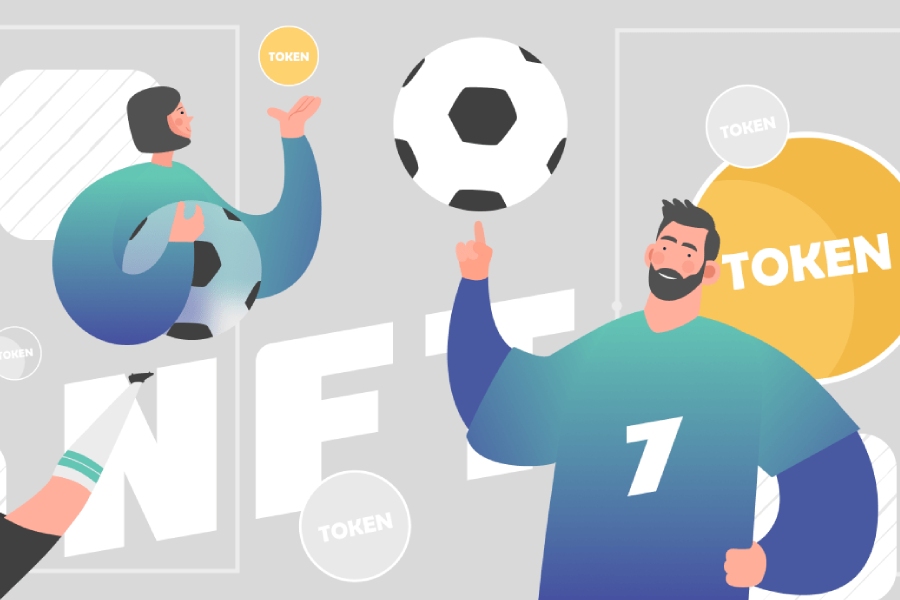In recent years, the sports industry has embraced a new technological phenomenon—Non-Fungible Tokens (NFTs). These digital assets, unique and secured by blockchain technology, are revolutionizing the way fans interact with their favorite teams and athletes. From exclusive content to digital memorabilia, NFTs are reshaping fan engagement in ways previously unimaginable.
What are NFTs?
Non-Fungible Tokens (NFTs) are digital tokens that represent ownership of a unique item or piece of content, backed by blockchain technology. Unlike cryptocurrencies such as Bitcoin, each NFT is distinct and cannot be exchanged on a one-for-one basis, which makes them perfect for representing rare or unique items, including sports memorabilia and digital art.
Exclusive Content and Experiences
One of the most exciting applications of NFTs in sports is the creation of exclusive content for fans. Sports teams and athletes are now offering NFTs that could include virtual meet-and-greets, behind-the-scenes footage, or even game-day experiences that are otherwise inaccessible. For instance, imagine owning an NFT that grants VIP access to a post-game press conference or a digital meet-up with your favorite player. These tokens are not just collectibles but gateways to unique experiences, deepening the fan’s connection to the sport.
Digital Memorabilia
Traditional sports memorabilia such as signed jerseys, game balls, and player cards have been popular among fans for decades. NFTs digitalize this concept, allowing fans to own digital memorabilia that can include multimedia elements such as video highlights, animations, or interactive features. This digital format adds a layer of engagement and enjoyment that traditional physical items cannot match. Moreover, because NFTs are blockchain-based, their authenticity and scarcity can be guaranteed, which is a significant advantage over traditional collectibles that can be counterfeited or replicated.
Enhancing Fan Loyalty
NFTs also offer an innovative approach to fan loyalty programs. By integrating blockchain technology, teams can issue NFT-based loyalty tokens that provide fans with rewards, access to exclusive merchandise, or voting rights on minor team decisions. These loyalty programs foster a deeper sense of community and belonging among fans, encouraging ongoing engagement throughout the season.
Monetization and Revenue Streams
For sports organizations, NFTs open up new avenues for monetization. Beyond ticket sales and traditional merchandising, NFTs provide a continuous revenue stream through initial sales and secondary transactions on NFT marketplaces. Each time an NFT is resold, the original issuer can earn a percentage of the sale price, thanks to smart contracts on the blockchain. This not only benefits the teams financially but also allows them to keep engaging with past season highlights and legendary players.
Challenges and Considerations
Despite their potential, NFTs are not without challenges. The environmental impact of blockchain technology, issues around digital ownership and rights, and the volatile nature of digital assets are concerns that need addressing. Moreover, as the market for sports NFTs grows, regulatory scrutiny is likely to increase, posing potential compliance hurdles.
Conclusion
The integration of NFTs into the sports industry marks a pivotal shift in fan engagement. By offering unique, exclusive, and interactive content, NFTs enhance the fan experience, deepen loyalty, and open new financial opportunities for sports organizations. As the technology matures and the market stabilizes, the role of NFTs in sports is set to expand, promising an exciting future for fans and teams alike.
This new era of digital collectibles and fan experiences illustrates just how profoundly technology can reshape industries and redefine how we interact with our passions. As we look to the future, the intersection of NFTs and sports holds limitless possibilities, heralding a new chapter in the world of sports fandom.







